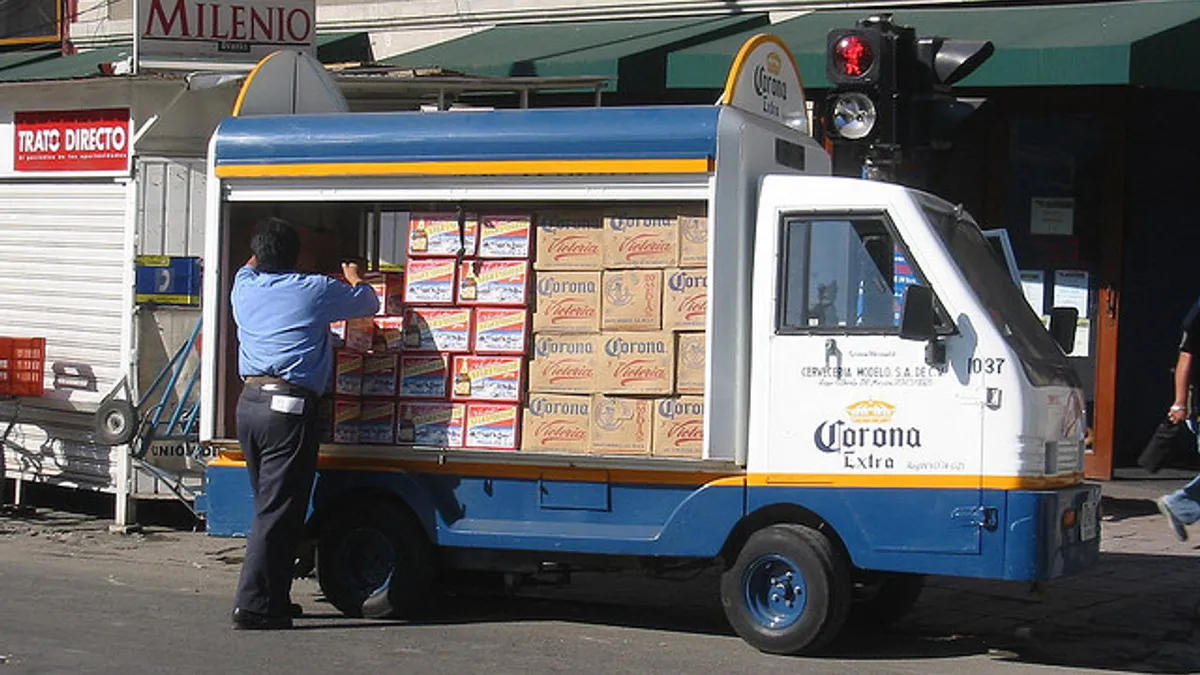Dive Brief:
- Corona beer distributor Constellation Brands is anticipating the effect of proposed GOP border tax reversals, The Wall Street Journal reported last week.
- Constellation is considering shifting its purchases of natural gas and packaging resources back to the U.S. in order to diminish taxes on its Mexican beer imports.
- The company will adjust its supply chain only if costs require the shift, which depends wholly on whether the border tax ultimately denies companies the right to deduct costs incurred abroad against U.S. corporate taxes.
Dive Insight:
When Representative Kevin Brady of Texas initially announced the GOP's tax proposal to balance U.S. trade interests, the reception was mixed. Proponents of the overhaul argued that it would "level the playing field" to return business into American borders. Opponents of the proposal countered that the plan, which resembles a value-added tax (VAT) on imports, would damage industries whose operations traverse across borders.
Brady and company will likely be delighted to hear about Constellation's public statements about how they are planning to deal with the tax proposals, shifting part of their production inside U.S. borders to gain competitive advantage. With the export of their goods in process to Mexico, Constellation will receive the benefit of no U.S. income tax. The company will then complete their production in Mexico and repatriate the goods back to the U.S. The hope is that the tax savings going one way will offset the tax increase in the other direction, and by remaining nimble in this regard, Constellation will be able to leverage both economies to capture market share.
This combination of import and export is going to be a crucial step for the supply chain in 2017 and beyond, but companies who lack the same flexibility will have to pay the penalty or risk losing ground against competitors. Then again, that may be what Constellation is banking on.













